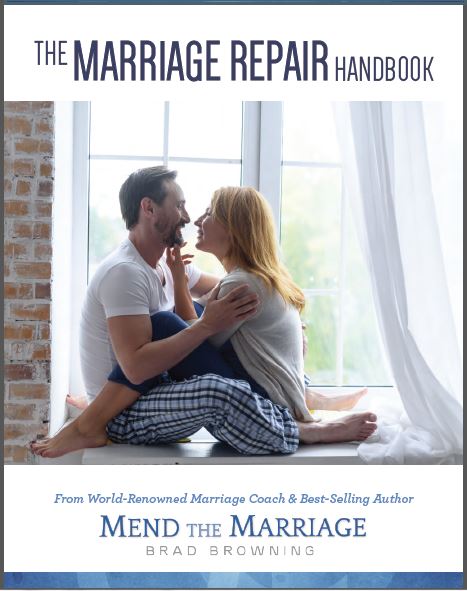Covenant Marriage: A Deeper Connection
Covenant Marriage vs. Traditional Marriage: Marriage is more than just a legal bond; it’s a journey of love and commitment. Covenant marriage takes this commitment to a deeper level. In a covenant marriage, couples go beyond the traditional promises made in a typical marriage. The essence lies in a profound commitment, where spouses pledge to support each other through thick and thin. This type of marriage emphasizes a sacred and unbreakable nature, fostering a connection that goes beyond the surface.
Covenant marriage isn’t just about promising to stay together; it’s about promising to thrive together. It involves a unique set of vows that express a deep and lasting commitment. These vows go beyond the standard “in sickness and health” and “till death do us part.” They encompass a pledge to stand by each other through all circumstances, creating a foundation of trust and mutual understanding.
In essence, a covenant marriage isn’t just a legal contract. It’s a heartfelt commitment to love, honor, and cherish one another, no matter what challenges may arise. It’s a conscious decision to prioritize the relationship and actively work towards its success. Covenant marriage, therefore, is not just a union of two individuals. It’s a covenant that shapes the very fabric of their connection.
What is a Covenant Marriage?
Understanding covenant marriage requires delving into the concept of marriage covenants. Marriage covenants are like special promises made by spouses to each other. In a covenant marriage, these promises are elevated to a new level. The commitments made in a covenant marriage aren’t just for the good times but extend to challenging situations as well. It’s a commitment to work through difficulties together, not only when it’s easy but especially when it’s tough.
In a covenant marriage, the partners recognize that challenges are inevitable, and they choose to face them united. The marriage covenant becomes a road map for navigating the complexities of life as a team. It’s a commitment to continuously invest in the relationship, to communicate openly, and to foster an environment of love and respect.
Covenant marriage isn’t about avoiding problems; it’s about confronting them together. It’s an agreement to prioritize the relationship, making it a resilient and enduring force. A covenant marriage is a journey where the couple actively chooses to grow and evolve together.
Understanding Marriage Covenants
Marriage covenants are the heart and soul of a covenant marriage. These are not just words recited during a ceremony; they are sacred promises that form the foundation of the relationship. In a covenant marriage, the vows go beyond the standard commitments of a traditional marriage.
Imagine marriage covenants as a set of guiding principles for the relationship. They are the promises that define the way a couple navigates their journey together. Examples of marriage covenants include phrases like “in good times and bad” or “in sickness and health.” These phrases aren’t mere rhetoric. They represent a commitment to standing by each other’s side through all of life’s ups and downs.
The significance of marriage covenants lies in their ability to shape the couple’s behavior and mindset. They create a framework for approaching challenges, celebrations, and everyday life. These covenants become a source of strength during difficult times. They are a reminder of the promises made and the enduring commitment to the relationship.
The Meaning of Covenant Marriage
Covenant marriage, at its core, is about depth and meaning. It’s about going beyond the surface-level commitment and creating a relationship with a profound sense of purpose. In a covenant marriage, the meaning goes beyond the legalities of a traditional union; it encompasses the spiritual and emotional aspects of the relationship.
The meaning of covenant marriage lies in the intentional choice to build a connection that transcends the ordinary. It’s a commitment to prioritize the well-being of the relationship above all else. Covenant marriage recognizes that love is not just a fleeting emotion but a deliberate and continuous choice.
In a covenant marriage, the meaning is derived from the daily actions and decisions that reflect the commitment made in the vows. It’s a shared understanding that the marriage is a journey, and each partner plays a crucial role in its success. The meaning of covenant marriage is found in the shared dreams, the mutual support, and the unwavering commitment to creating a life together.
Covenant Marriage vs. Traditional Marriage
Now, let’s delve into the comparison between covenant marriage and the more traditional approach. In a traditional marriage, the vows often revolve around promises to stay together until death do us part. While heartfelt, these vows may not carry the same depth of commitment as those in a covenant marriage.
In a covenant marriage, the partners explicitly commit to facing all challenges together. It’s not just about staying together; it’s about thriving together. Covenant marriage vows go beyond the standard commitments, incorporating phrases that express a commitment to support each other in all circumstances. This fundamental difference sets covenant marriage apart from the more common traditional approach.
In a traditional marriage, the focus may be on the legal and societal aspects of the union. The vows often include the commitment to love and cherish, but the depth of commitment to facing challenges together may not be as explicit. This distinction becomes crucial when navigating the complexities of married life, especially when confronted with adversity.
Non-Covenant Marriage: Exploring Alternatives
While covenant marriage emphasizes a deeper commitment, it’s essential to explore the alternative – non-covenant marriage, often synonymous with traditional marriage. In a non-covenant marriage, couples may not explicitly commit to facing challenges together. The absence of these additional promises can impact the depth of the connection, leaving the relationship more vulnerable to external pressures.
Non-covenant marriages rely on standard vows without the added layer of commitment found in covenant marriages. While these marriages can be strong and enduring, they may not have the same level of resilience when faced with significant challenges. The absence of explicit promises to support each other through thick and thin can create a different dynamic within the relationship.
Exploring non-covenant marriage is not to diminish its value but to highlight the differences in approach. Traditional marriages have stood the test of time and continue to be the foundation of countless successful relationships. However, understanding the distinctions between covenant and non-covenant marriages allows couples to make informed choices about the level of commitment they desire in their union.
Examples of Marriage Covenants
To better understand the essence of covenant marriage, let’s explore some examples of marriage covenants. In a covenant marriage, vows are carefully crafted to express a deep and lasting commitment. These promises set the tone for a relationship built on trust, love, and unwavering support.
One example of a marriage covenant might include the phrase “in good times and bad.” This simple yet powerful commitment signifies a promise to stand by each other, not only when everything is going well but especially when faced with challenges. It’s a recognition that the journey of marriage is not always smooth, but the commitment to facing difficulties together is unwavering.
Another example could be the pledge “in sickness and health.” This covenant recognizes the inevitability of life’s uncertainties and commits to supporting each other through illness and wellness alike. It’s a promise to be a source of strength and comfort during times of vulnerability.
These examples showcase the intentional and meaningful nature of marriage covenants in covenant marriages. They go beyond the standard vows, reflecting a commitment to a resilient and enduring connection. By incorporating these promises into their union, couples in covenant marriages actively choose to make their relationship a top priority.
Covenant Marriage Vows: Promises for a Lifetime
Covenant marriage vows are not mere words recited during a ceremony; they are promises crafted to endure a lifetime. In a covenant marriage, these vows express a deep and lasting commitment to the relationship. The words chosen go beyond the ordinary, capturing the essence of a love that stands the test of time.
One of the key aspects of covenant marriage vows is the commitment to support each other in all circumstances. Vows often include phrases like “for richer or poorer” and “for better or worse.” These expressions signify a pledge to stand by each other’s side, not just during the joyful and prosperous moments but also during challenging times.
Covenant marriage vows may also incorporate promises to prioritize the relationship. Phrases like “I will prioritize our love above all else” or “I will actively work towards our shared goals” emphasize the intentional choice to make the marriage a central focus in each partner’s life. These vows become the guiding principles that shape the couple’s journey together.
The beauty of covenant marriage vows lies in their ability to articulate the depth of commitment and love. They go beyond the ordinary and become a source of strength during difficult times. Covenant marriage vows are not just promises for the present; they are promises for a lifetime, reflecting a commitment to continuously invest in the relationship and to nurture a love that grows stronger with each passing day.
Marriage Covenant or Contract?
The distinction between a covenant marriage and a traditional marriage often leads to the question of whether a marriage is a covenant or a contract. In a traditional marriage, the emphasis may lean more towards the contractual aspects, involving legal obligations and societal expectations. Covenant marriage, on the other hand, shifts the focus towards the spiritual and emotional dimensions of the union.
A marriage contract typically involves legal agreements, outlining the rights and responsibilities of each spouse. It addresses aspects such as property, finances, and potential outcomes in case of separation. While contracts serve an essential role in providing a legal framework for marriage, they may lack the depth of commitment found in a covenant marriage.
Covenant marriage challenges the notion of marriage as a mere contract by introducing the idea of a sacred and unbreakable commitment. It emphasizes the spiritual and emotional connection between spouses, elevating the relationship beyond legal obligations. In a covenant marriage, the focus is on building a connection that goes beyond the practicalities of daily life, fostering a sense of unity and purpose.
While contracts provide a necessary structure for traditional marriages, covenant marriages invite couples to view their union as more than a legal arrangement. It encourages partners to see marriage as a covenant—a sacred promise to love, honor, and cherish each other through all circumstances. The distinction lies not in negating the importance of contracts but in elevating the relationship to a higher, more meaningful level.
Exploring Non-Covenant Marriage
To gain a comprehensive understanding of marital dynamics, it’s essential to explore the concept of non-covenant marriage. In a non-covenant marriage, couples may not explicitly commit to facing challenges together. The absence of these additional promises can impact the depth of the connection, leaving the relationship more vulnerable to external pressures.
Non-covenant marriages, often synonymous with traditional marriages, rely on standard vows without the added layer of commitment found in covenant marriages. While these marriages can be strong and enduring, they may not have the same level of resilience when faced with significant challenges. The absence of explicit promises to support each other through thick and thin can create a different dynamic within the relationship.
Exploring non-covenant marriage is not to diminish its value but to highlight the differences in approach. Traditional marriages have stood the test of time and continue to be the foundation of countless successful relationships. However, understanding the distinctions between covenant and non-covenant marriages allows couples to make informed choices about the level of commitment they desire in their union.
In non-covenant marriages, the focus may be more on the legal and societal aspects of the union. Vows often include commitments to love and cherish, but the depth of explicit commitment to facing challenges together may not be as pronounced. This distinction becomes crucial when navigating the complexities of married life, especially when confronted with adversity.
By exploring the dynamics of non-covenant marriages, individuals can better appreciate the varied approaches to building lasting relationships. Whether choosing a covenant or non-covenant marriage, the key lies in understanding the unique dynamics of each and making intentional choices that align with the couple’s values and vision for their future.








